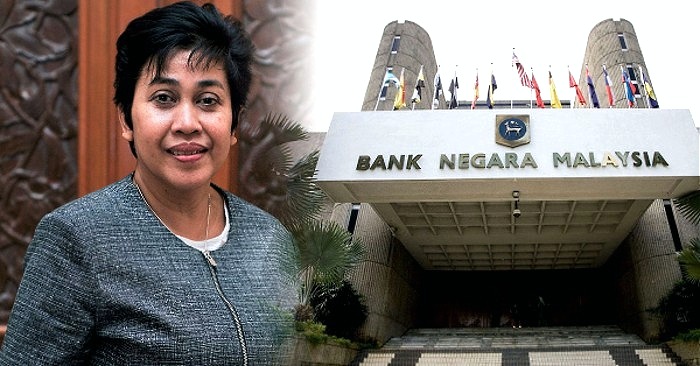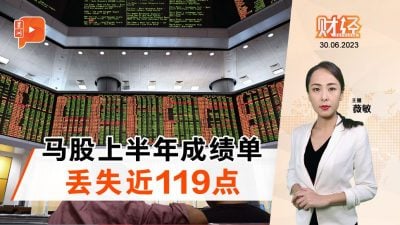BNM’s rate hike decision implies that our economy is getting better, which is definitely a positive indication for post-pandemic recovery.
Bank Negara announced on Wednesday to raise the overnight policy rate to avert the excessive impact from global inflation on the national economy just about to recover after the coronavirus pandemic.
The central bank’s decision puts Malaysia on the list of countries tightening their monetary policies to ward off the spiraling inflation due to supply chain disruption as a consequence of the war in Ukraine.
As a matter of fact, we are a little behind time in raising the interest rate compared to other regional countries. Any further delay in raising the rate could be interpreted by investors as our indifference to the risks of inflation.
The Federal Reserve announced half a percentage point rate hike on May 4 in response to burgeoning inflation pressures arising from the Russia-Ukraine military conflicts.
Given the global dominance of the Dollar, the Fed’s rate hike decision is poised to wield tremendous direct and indirect influences over the global economy. Pursuant to this, the central banks of Hong Kong, India and Australia, among others, have followed suit, and more are expected to adopt a similar monetary tightening stance.
Nevertheless, we have not drastically increased the interest rate by half a percentage point as by the Fed, and we believe our Bank Negara will do this gradually.
Although the market had earlier expected BNM to raise the interest rate only in July, given the fact further delay will not do the country any good, the sudden rate hike announcement, while coming as somewhat a surprise to many, has been a resolute move of the regulating body to tame the inflation.
BNM must have been well aware that the risks of skyrocketing international raw material prices as well as domestic inflation would not be relieved anytime soon, and it is therefore not totally unexpected for BNM to increase the OPR by a quarter percentage point, which is the appropriate move during such unusual times to hold down goods prices and ensure financial stability.

The country’s transition to the endemic phase of Covid-19 with remarkably relaxed antivirus restrictions since the beginning of April, coupled with the strengthening recoveries of regional economies, has given the central bank ample space to act fast to check the inflationary pressure.
While economists have been taken aback by the sudden announcement, they remain upbeat about the signal of promising economic expansion as released in the central bank’s action, foretelling a stronger-than-expected first quarter GDP figure to be released today.
That said, there is still some degree of risk in relation to the move for the simple reason the pandemic has yet to completely vanish against the backdrop of continued turmoil in the financial and monetary markets, in particular threats from the Ukrainian war. Let’s pray that everything will be alright soon.
Meanwhile, interests for corporate and personal loans released by commercial banks will invariably rise in tandem with the 0.25% OPR hike. Theoretically, a tightened monetary policy will reduce money supply to the market and this should effectively tame the inflation and cool the overheating economy. As the peak festive consumption is just over, the rate hike is not expected to significantly impact the everyday lives of average Malaysians.
BNM can perhaps consider lowering the interest rate after we have sailed past the current crisis in order to inject fresh liquidity into the market and bring down the banks’ loan interests, so that Malaysian companies and individuals can gain access to cheaper loans which will in turn enliven the market and stimulate the overall economy.
However, some analysts are of the view that the latest move by BNM is meant to gauge the market response and whether the rate hike will eventually impact the country’s economic growth.
Analysts nevertheless agree that a rate hike should be instituted earlier and not later, and that BNM must be more foresighted and responsive. It will be too late if it acts only after public consumption has been severely squeezed by the smothering inflation.
In short, BNM’s rate hike decision implies that our economy is getting better, which is definitely a positive indication for post-pandemic recovery.
ADVERTISEMENT
ADVERTISEMENT








































